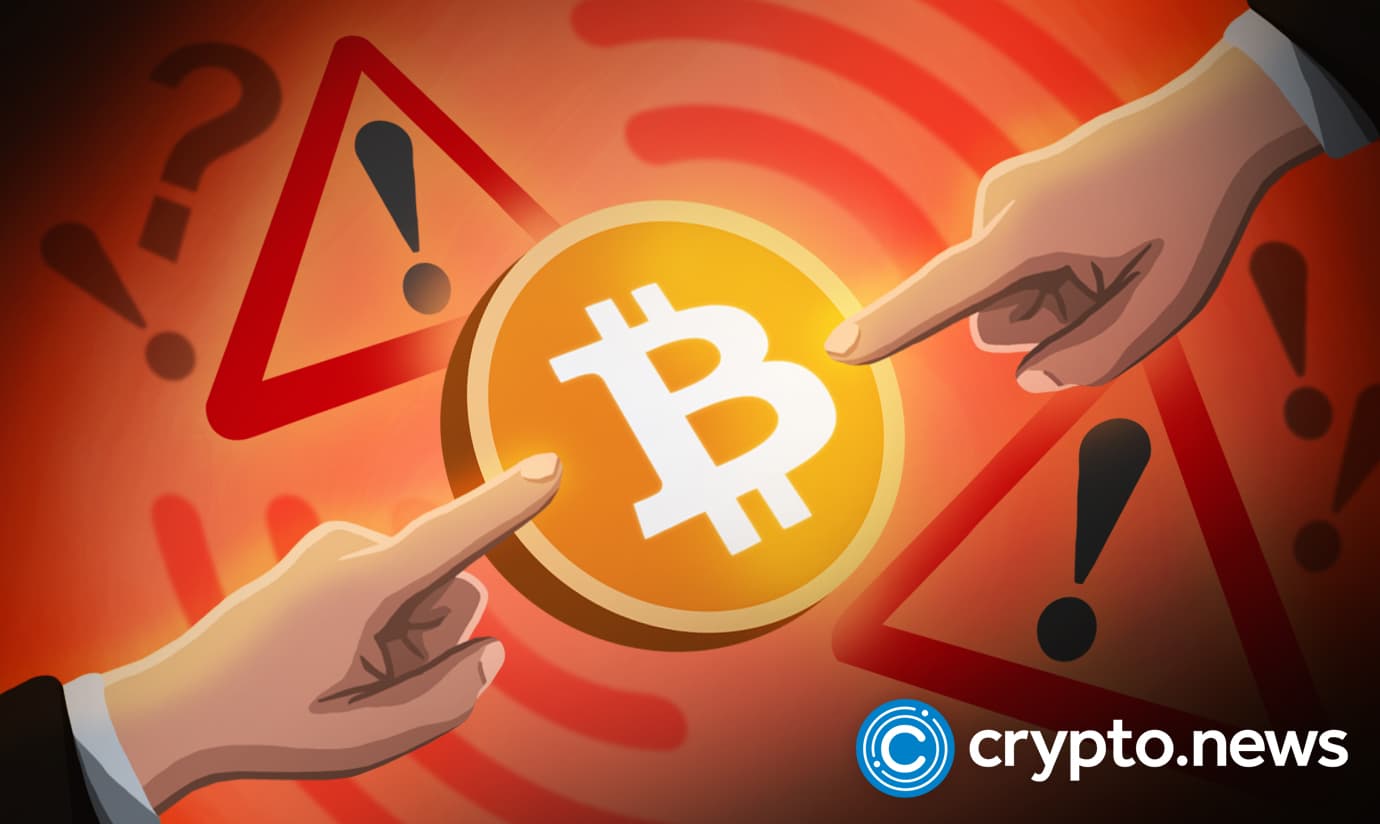US Lawmakers Receive Anti-crypto Letter Propagating FUD

26 leading Professionals have rallied together to write and address a letter to Washington. The letter is against the adoption of cryptocurrencies which Biden’s government is largely ‘favouring’ after it revealed that it is not planning on banning the assets. The letter addresses blockchain technology and its assets as a “solution in search of a problem.”
According to the Financial Times, the letter bears the signatures of 26 professionals, including technologists and academics who mainly were former workers of FAANG firms. The report says that the letter has already been handed over to the lawmakers.
The lawmakers to whom the letter was addressed are Senate’s majority and minority Leaders, Charles Schumer and Mitch McConnell, Ron Wyden (D-OR), and Senator Patrick Toomey (R-PA).
26 Professionals Send an Anti-crypto Letter to Washington Featuring FUDs
The United States of America government has received a letter that urges its lawmakers to do away with cryptocurrencies. A 1st June report by Financial Times details that the latter urges the lawmakers to:
“Take a critical, skeptical approach toward industry claims that crypto-assets are an innovative technology that is unreservedly good” and “resist pressure from digital asset industry financiers, lobbyists, and boosters to create a regulatory safe haven for these risky, flawed, and unproven digital financial instruments.”
An excerpt from the letter reads:
“Blockchain technology cannot, and will not, have transaction reversal mechanisms because they are antithetical to its base design. Similarly, most public blockchain-based financial products are a disaster for financial privacy; the exceptions are a handful of emerging privacy-focused blockchain finance alternatives, and these are a gift to money-launderers.”
The letter calls blockchain technology “ a solution in search of a problem.” It explains that it has design flaws that preclude the existing platforms that deal with the public and regulated financial data so long as they are not an improvement on the available blockchain innovations.
A Havard cryptographer and computer security expert, Bruce Schneier, among the signatories, gave his comments to Financial times.
He said, “It’s not secure (referring to blockchain technology) it’s not decentralized. Any system where you forget your password and you lose your life savings is not a safe system.”
Some of the other known signatories of the letter include:
- Former Microsoft engineer Miguel de Icaza
- Google Cloud principal engineer Kelsey Hightower
- Canadian coder and activist Tim Bray,
- Notorious no-coiner David Gerard.
- Canadian/British tech blogger Cory Doctorow,
Against Crypto, Yes, but Why the FUD?
While it is great to challenge some of the steps that the government takes in developing the country, it is best to be unbiased. The letter in question addresses significant worries from the signatories, but it goes wrong about crypto in many ways. Here are some of the FUD that it is propagating.
There is a part where it calls digital assets unproven financial instruments. Although it is correct that they are highly risky, it goes wrong to claim that they are not proven. What is the best test, if not time?
The crypto space has stood firm over its years of existence, gaining value essentially, still widening. In 2017 on a month like this, the crypto market capitalization was below $200B. Now it stands above $2T. Isn’t such performance proof that the crypto market is on the right track?
It (the letter) challenges blockchain’s nature of irreversible transactions and says that most public blockchains are poor at maintaining financial privacy. One of the reasons why blockchain technology was designed is to ensure that transactions cannot be reversed to do away with bias that could affect their efficiency and aim. It also records its data on a public ledger system that shows all transactions made anonymously with only the addresses.
This anonymity ensures that the identities of the parties behind the transactions are safe, and no one can mine them as they are not recorded in the first place. That functionality makes blockchain technology safer than financial institutes since no one can ever hack personal data from its ledgers.
It also focuses on private blockchains as safe for financial privacy but harmful due to being vehicles for vices like money laundering. This claim may seem to have some ground as private blockchains are only operated by their owners, and there is no one to flag them. However, it is wrong, and a FUD as the money passed through the blockchains is intended to facilitate faster operations of the parent companies. It, therefore, has to reflect on the books of accounts of the involved companies once it leaves the networks. If it was confirmed that the institutions that own such networks were abusing them, regulators would already have made an example of some.
Bruce Schneir also instigated a FUD while giving his comments to Financial Times. He claimed that blockchain technology is not secure, not decentralized, and has flaws since if you lose your password, you lose your life savings. These are points of concern, but the way he puts them is utterly wrong.
Blockchain technology does not rely on human decisions to run. That makes it the most decentralized financial tool available in the world at the moment. Also, it is the most secure one since the algorithm behind it cannot be broken. That means no one can hack and steal funds from blockchains while transactions occur. The only time crypto assets get compromised is after leaving the blockchains and getting to storage solutions in different platforms is caused by flaws on the respective platforms.
The other challenge is that the technology is flawed since no one can access a wallet whose password has been lost. This feature is one of the significant scores, and it shows how the technology keeps away bad actors like hackers. It is one of the best security systems to financial tools developed in history. Therefore it is wrong to classify it as bad after leaving the solutions to ensure that one keeps their portfolio safe.
The best solution to keeping the account safe even from loss of password is to keep physical backups rather than dismissing the innovation. Though numerous ‘professionals signed the letter, ’ none of them was a blockchain specialist, which reflects in the ‘pain points’ that it addresses.
The crypto community noticed the ‘professional concerns’ in the letter and called them out. Such occurrences call for everyone to research the assets and how they work rather than make claims based on unverified facts.















